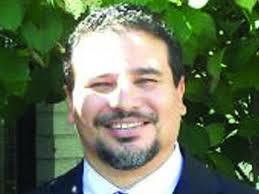
Ted Harada
crainsdetroit.com
All Ted Harada wanted was the “Right to Try.”
Back in 2010, Harada was diagnosed with Amyotrophic Lateral Sclerosis (ALS), better known as Lou Gehrig’s disease. It’s an illness that has no FDA approved drug to alleviate the symptoms.
In fact, it does not have a cure.
Motor neurons inside the spinal cord die and muscles become atrophied as eventually the patient can no longer, move, speak, swallow and eventually breathe.
Harada’s story was chronicled in a Washington Post blog authored by Marc Thiessen.
After being diagnosed by Jonathan Glass, a doctor at the Emory ALS Center, Harada’s condition was deteriorating rapidly. He could only walk short distances with an aid of a cane and things everybody takes for granted became impossible for him.
“What saved Ted was an experimental ALS treatment pioneered by doctors at the Emory ALS Center, in which doctors opened his spinal cord and injected neural stem cells directly into diseased areas, where the pools of motor neurons affected by ALS are found. The hope was that the surgically implanted cells would fix or replace the damaged ones and that this would slow or stop the degeneration of the motor neurons,” Thiessen wrote.
Harada wrote this in an oped in the Atlanta Journal Constitution.
“Weeks after invasive surgery, I put down my cane and regained strength throughout my body. Empirical data showed that while I was not cured, they could document me regaining strength. You can only imagine the depth of my family’s joy and happiness, all because we had the ‘right to try.’”
According to Harada’s blog, “Right to Try” allows a patient access to investigational medications that have passed basic safety tests without interference by the government when certain conditions are met.’
Those conditions include the patient has been diagnosed with a terminal disease and has considered all available treatment options. Other conditions include that the patient’s doctor has recommended the drug which best represents the patient’s best chance at survival. In addition, informed consent must be provided and the sponsoring company chooses to make the drug available to patients outside the clinical trial.
In October 2012, Harada took part in a walk to defeat ALS and completed it with no problem.
Thiessen wrote, “Ted completed the ALS walk four years in a row. He ditched his cane and was able once again to play with his kids in the pool and walk up the stairs to tuck them in for bed.”
Before Harada had surgery, he was told the treatment likely would not help him because it was just a part of a safety trial, But the procedure did not kill him, it reversed his ALS symptoms.
Harada told his story and campaigned for Right to Try legislation. Now, 38 states have adopted similar legislation.
Harada’s story, though, ended tragically.
Right before Georgia became the 28th state to pass Right to Try legislation, Harada succumbed to brain cancer.
Thiessen wrote, “We will never know how long Ted’s ALS symptoms would have remained in remission, but we know this much for certain: Ted did not die from ALS. Ted Harada did something good with his gift. He made medical history and brought hope to others who have been diagnosed with a terminal illness.”




